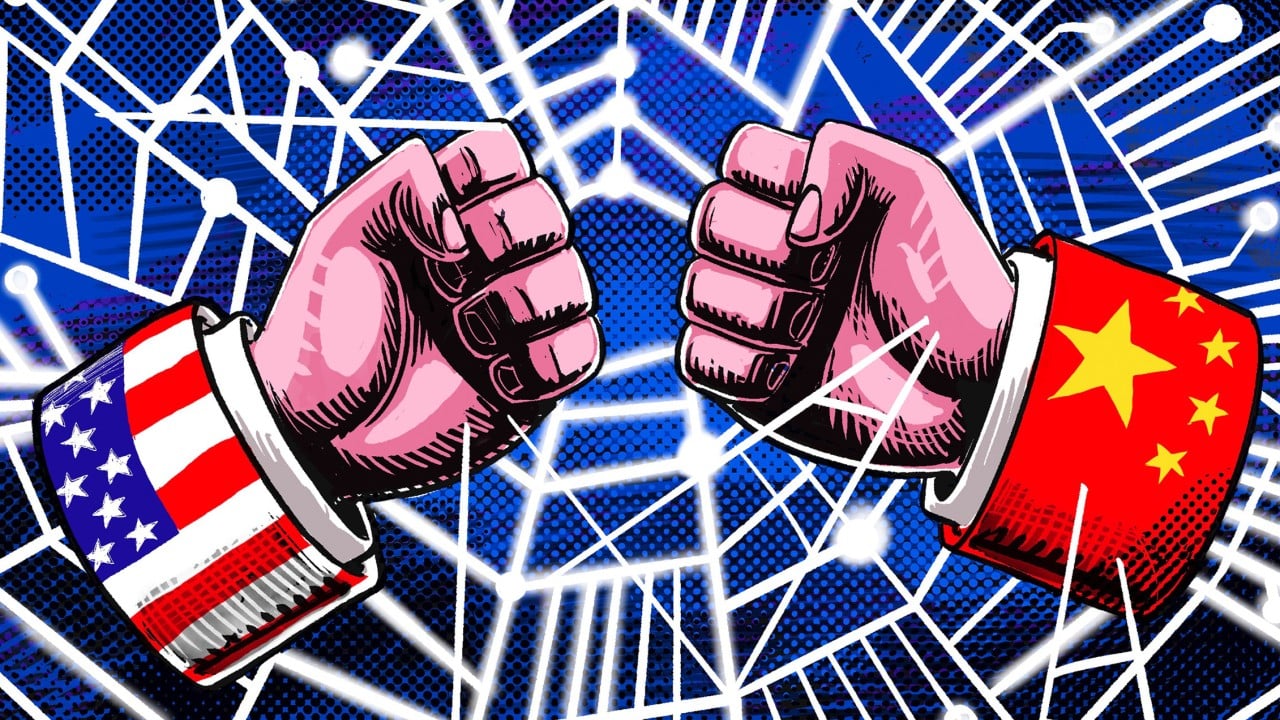The US-China rivalry has long been cast as a contest between two superpowers, with one rising and the other defending its primacy. This competition has been largely measured in GDP growth, military spending and the number of aircraft carriers and alliances each side could marshal. The central criteria is “who holds power” or “who has more power”.
Advertisement
Yet today, the rivalry can no longer be understood by these conventional metrics. Rather, it is taking place within a complex web of technology, infrastructure and environmental systems that both sides are trying to control. In this new era of entangled competition, humans aren’t the only ones making things happen; technological and material systems produce geopolitical outcomes and shape state power.
Traditional thinking in international relations assumes that states and elites drive history. Realists measure power in weapons and resources; liberals do so in institutions and cooperation. Both see physical matter – resources, technology and the environment – as passive settings for human ambition, but that view is outdated. The infrastructure and technologies people build are beginning to reflect back on us, shaping decisions, alliances and vulnerabilities in ways no strategist fully intended.
The ongoing conflict between the Netherlands and China over chipmaker Nexperia shows how today’s geopolitical struggles can be shaped by a dense network of technological systems, supply chains and material infrastructure rather than by government decisions alone.
When the Dutch government moved to take control of Nexperia, China responded by restricting chip exports. The dispute revealed how deeply global production depends on non-human actors such as semiconductor factories, logistics networks and the minerals that make chips possible. These technological and ecological systems effectively gained “agency” in the conflict: the location of Nexperia’s plants in China, the dependence of European carmakers on its chips and the interdependent global supply chain all play a role in shaping the outcome.
Advertisement
In this sense, the issue is not just a political disagreement but a struggle over control of the broader web of machines, materials and infrastructure that jointly produce modern geopolitical power. In this web of power entanglement, matter itself wields influence.

